Supply and Demand: Solving Canada’s Housing Crisis One Relocatable Housing Unit at a Time
Sometimes, the best partnerships are built on chance encounters. That’s precisely what happened when Lauren Mason met Dean Powers on a modular building construction site in Vancouver, Canada.
Lauren was the site superintendent. Dean was on site using his thirty-plus years of experience manufacturing and installing modular buildings to ensure the project went smoothly.
The pair discovered a mutual passion for relocatable buildings, especially how they might offer an innovative solution to the housing crisis that cities like Vancouver face.
A few more discussions, and they’d identified the perfect balance of supply and demand: repurposing retired Alberta oil field camp housing units as workforce housing on farms and at ski lodges and using them as rapidly deployable temporary housing in large urban centers.
It's rare for successful teams to meet this way, but it’s even rarer for two people to have an idea like this and believe in it so much that they take the leap to turn it into a reality. So far, that’s precisely what the team behind Moda Modular has done.
Since taking that leap has seen them go from operating from a garage to employing 15 people in under four years, with no slowdown in sight; it’s clear their instincts were right.
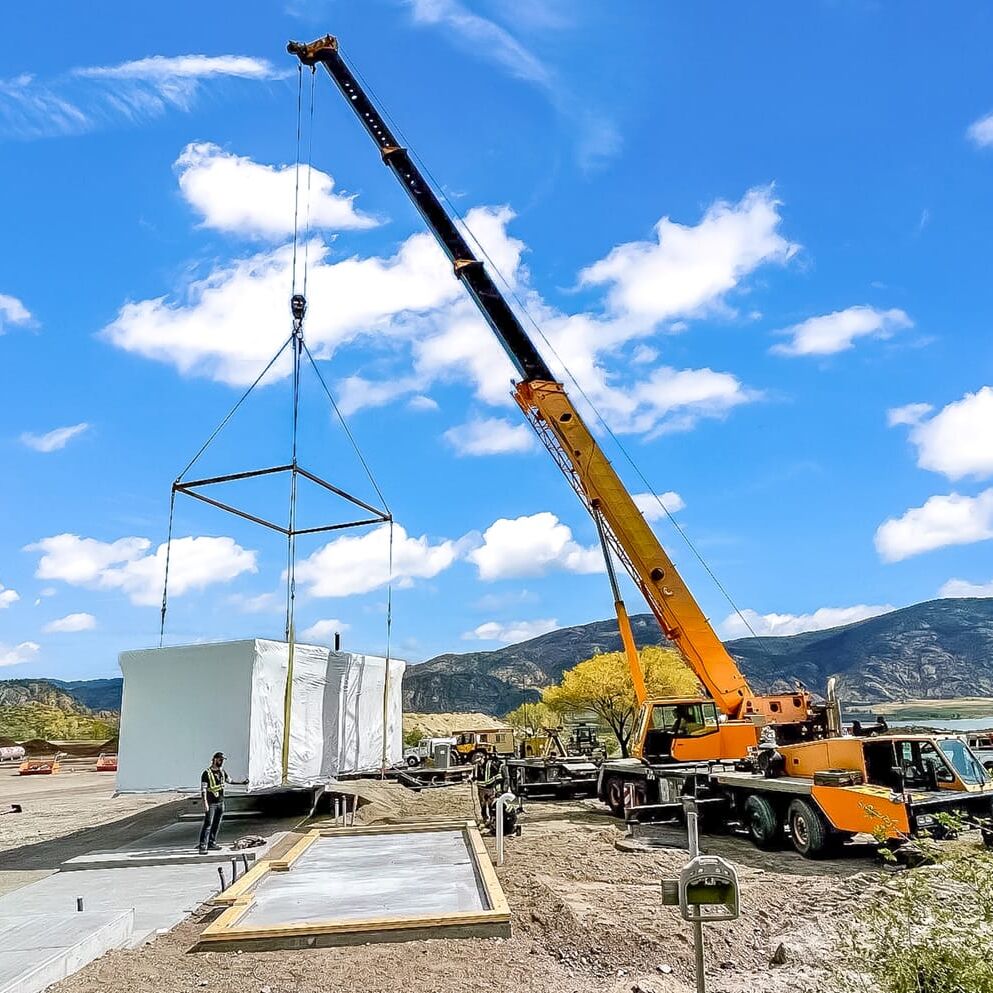
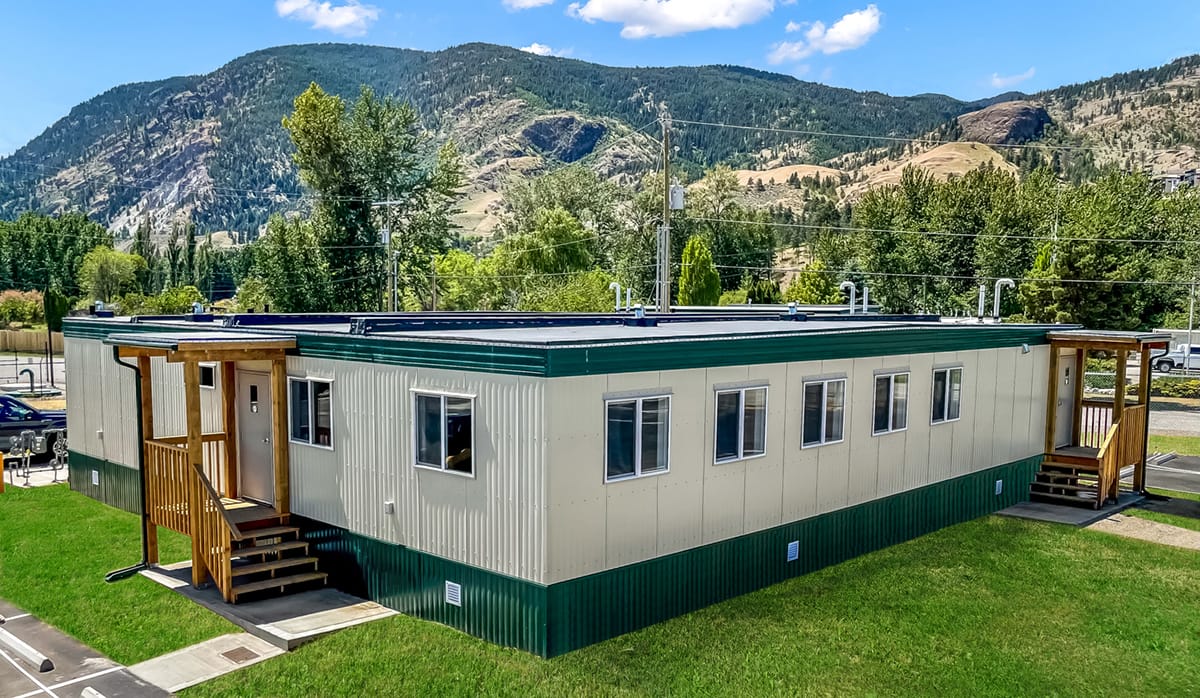
Simple, but effective, workforce housing solutions made from repurposed buildings.
Two Problems, One Solution
During their conversations about modular buildings, they realized that the neighboring provinces of Alberta and British Columbia have two very different problems with one possible solution.
In Alberta, particularly northern Alberta in the area known as the oil sands, oil companies have constructed mini-cities of modular buildings to house oil field workers. However, over time, the needs and wants of employees have changed, meaning many of the older units, notably Jack and Jill-style accommodations, have been retired.
When these units are retired, they’re often taken to a remote lot for storage, and many will rot and degrade and potentially become dangerous for people and animals.
At the same time, British Columbia, where Moda Modular is based, has the largest number of temporary foreign workers, without whom the local economy could not function.
“There are over 30,000 TFWs in British Columbia,” says Mason, “that’s more than Ontario, even though Ontario has twice as big a population. Without them, agriculture, including wineries and orchards, would cease to operate.”
But even temporary foreign workers need safe, comfortable accommodation. However, in a place where even employed people sometimes find themselves homeless due to housing availability and affordability, providing that accommodation in areas that are often also tourist destinations is a huge challenge for employers.
“By repurposing and renovating retired oil field accommodation for temporary staff and providing an alternative to traditional housing for those people, we’re helping to alleviate the housing crisis, one unit at a time.” Says Mason.
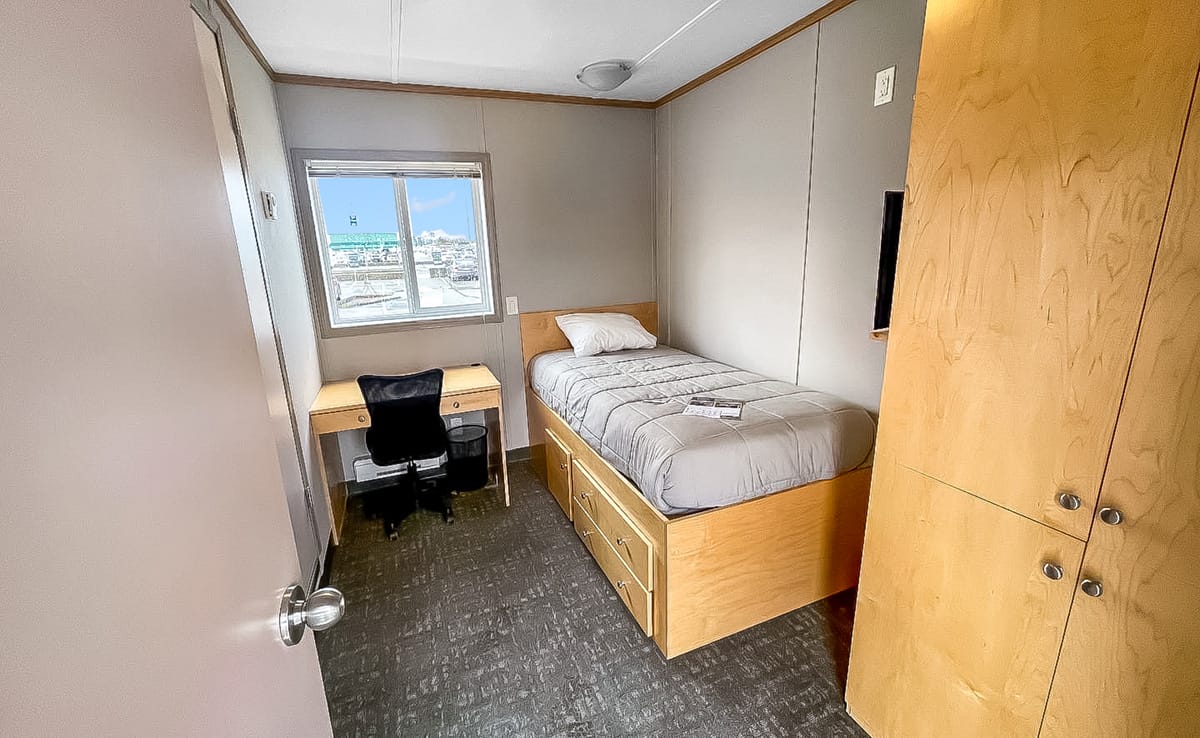
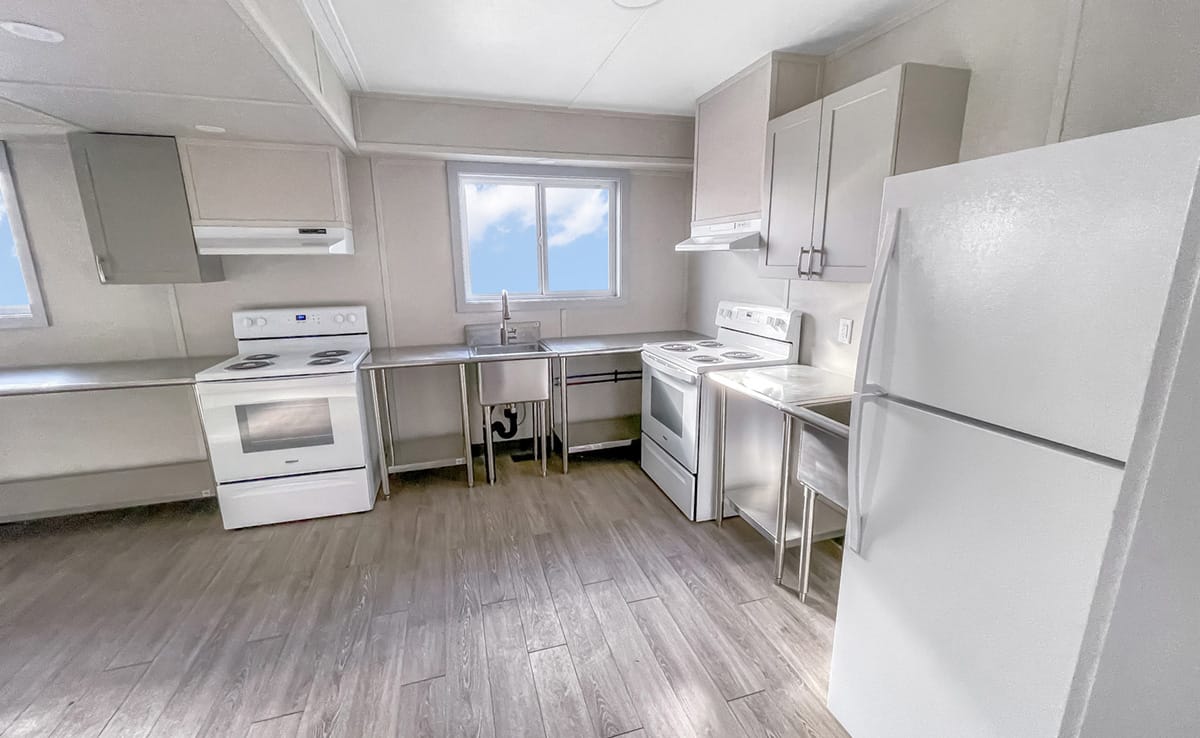
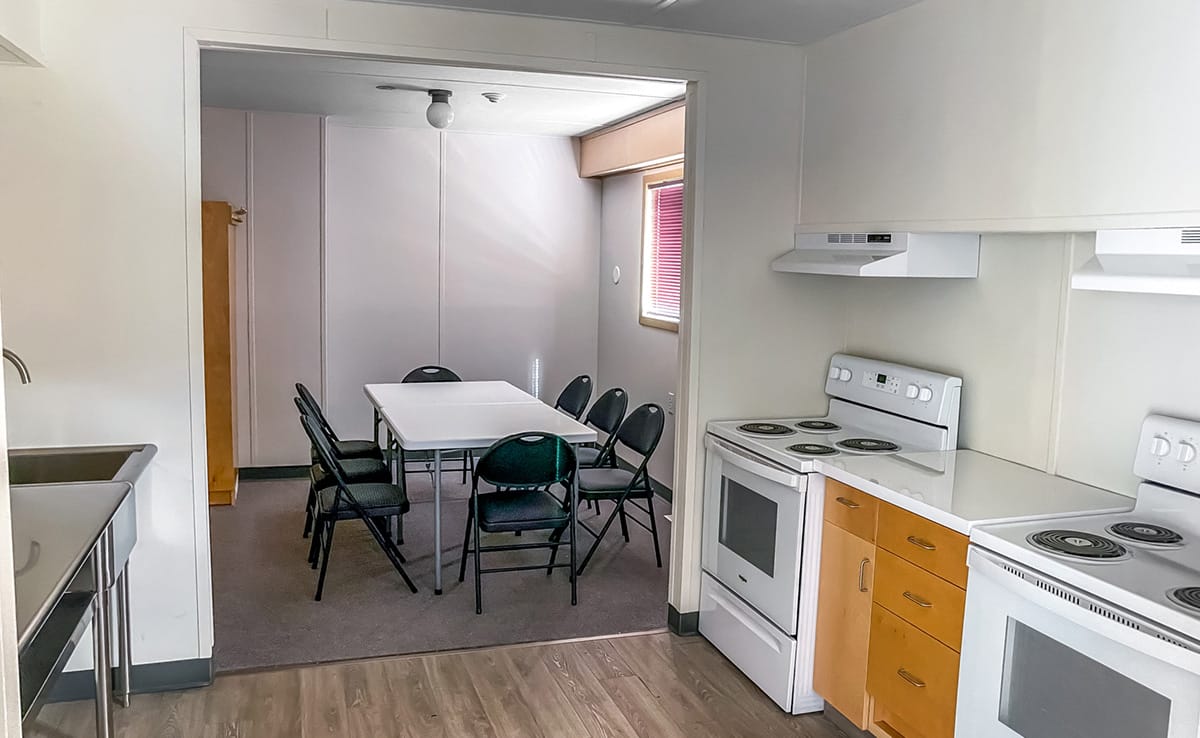
A typical private bedroom offering a modern, comfortable feel with plenty of storage. And the kitchens come with new finishes and fixtures.
Good Bones Don't Come Without Challenges
The good news for Moda Modular is that, in many ways, the building regulations that govern modular buildings in Alberta are more stringent than the same regulations in British Columbia.
That usually means that the buildings are well-designed and well-built. But even with good bones, renovating and repurposing oil field camp accommodations for a different workforce or use can be challenging.
“One of the most important things we do is to make sure we always get a visual inspection of any unit before we purchase them,” Mason explains. “Some of the biggest problems these buildings tend to have is leaks or water damage, so those are some of the main things we look for before we make any purchases.”
They’ve also discovered that even though Alberta typically gets more snow than British Columbia, it’s wetter and heavier in BC, so even when roofs are in great shape, they sometimes need to be reinforced for the increased snow load.
But even when campsite buildings don’t have any structural problems or significant damage, getting them ready for new tenants is a big job.
“Our goal is always to balance cost-effectiveness for our customers and functionality for the people who will be living in these units,” Mason says. “But we’re always flexible and focused on their needs, so we’re open to input and ideas.”
For instance, many of Moda Modular's units for their customers incorporate smaller, residential-style kitchens. These are usually not required on oil field campsites, where everyone uses a large communal dining hall with a commercial kitchen.
“We’ve also added recreation spaces and even outdoor facilities like decks so that employees can enjoy the space outside their accommodation too.”
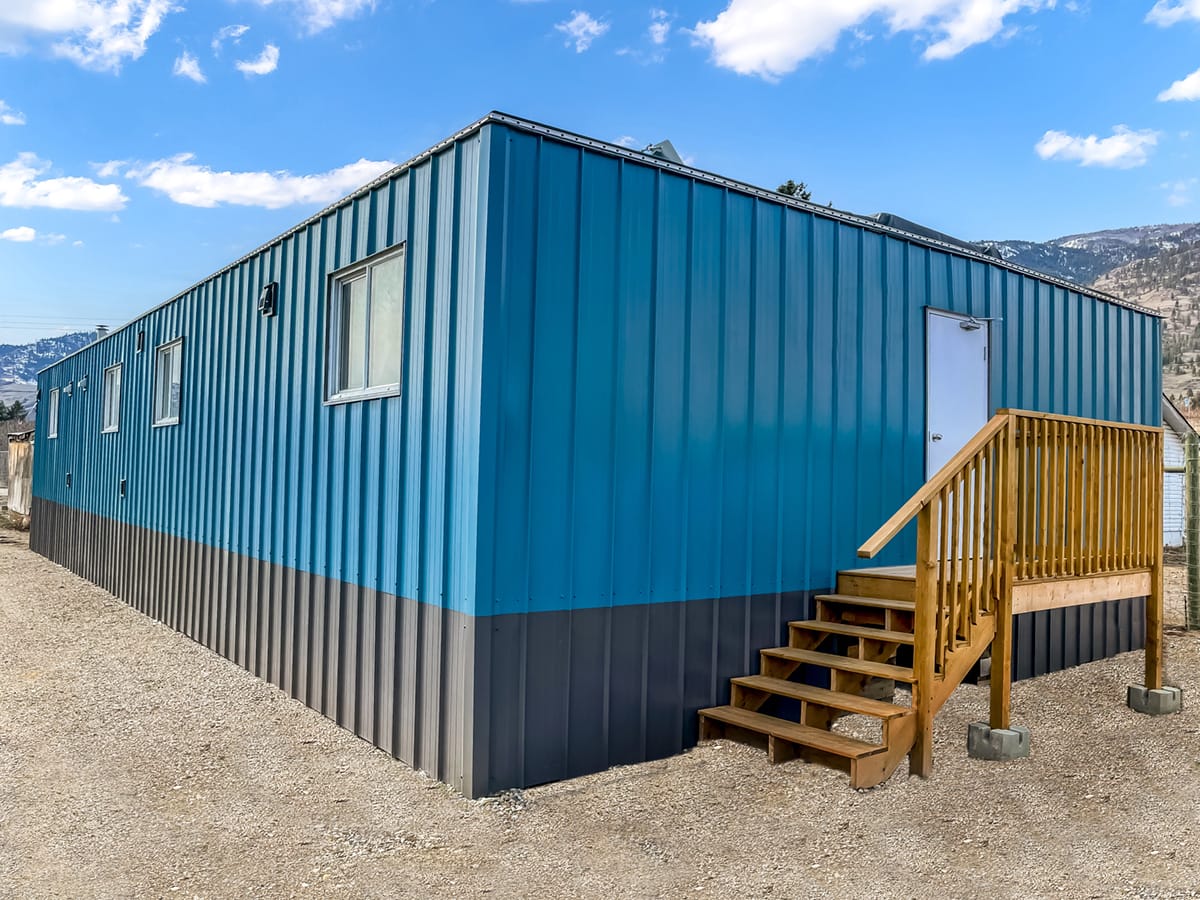
Refurbished temporary foreign worker camp complete with new siding.
An Environmental Win
Most people these days are more conscious of the environmental impact of our lives on the planet, and we’re all looking for new and innovative ways to reduce our carbon footprint. That’s one of the biggest benefits of modular building over site-built structures in general.
In fact, the Canadian Home Builders Association estimates that the greenhouse gas emissions associated with the construction of modular buildings are up to 40% lower than similar site-built structures.
Moda Modular is taking that to the next level.
Not only do their repurposed employee housing solutions cut the emissions related to construction down to nearly zero, but they also keep building materials that are often not biodegradable from slowly decaying in storage facilities.
It’s the classic environmental mantra of reduce, reuse, and recycle, scaled up and applied to building after building.
Legislative and Regulatory Challenges
You would think that in a country facing a severe housing crunch and aggressively working to reduce carbon emissions, a company like Moda Modular would be embraced and supported by the government at every level.
Unfortunately, that’s not always the case.
“Some of our biggest challenges so far have been working with the different levels of government.” Says Mason. “Even though we buy the units in Alberta, which is right next door to British Columbia, the laws and regulations between the two are sometimes very different.”
This often complicates transport and logistics, with Mason mentioning needing to employ pilot cars from the BC border to certain sites and several other differences in how modular buildings are transported to the site.
It’s not just transport that is complicated by the multi-jurisdictional nature of Moda’s business.
“Sometimes, I wish things like building codes were overseen by the federal government rather than provinces and municipalities,” Mason adds. “We’ve run into several situations where the local municipality and their building inspectors create bottlenecks and red tape. But fortunately, so far, we’ve always found a way to bring buildings and projects up to local code and complete projects for our clients.”
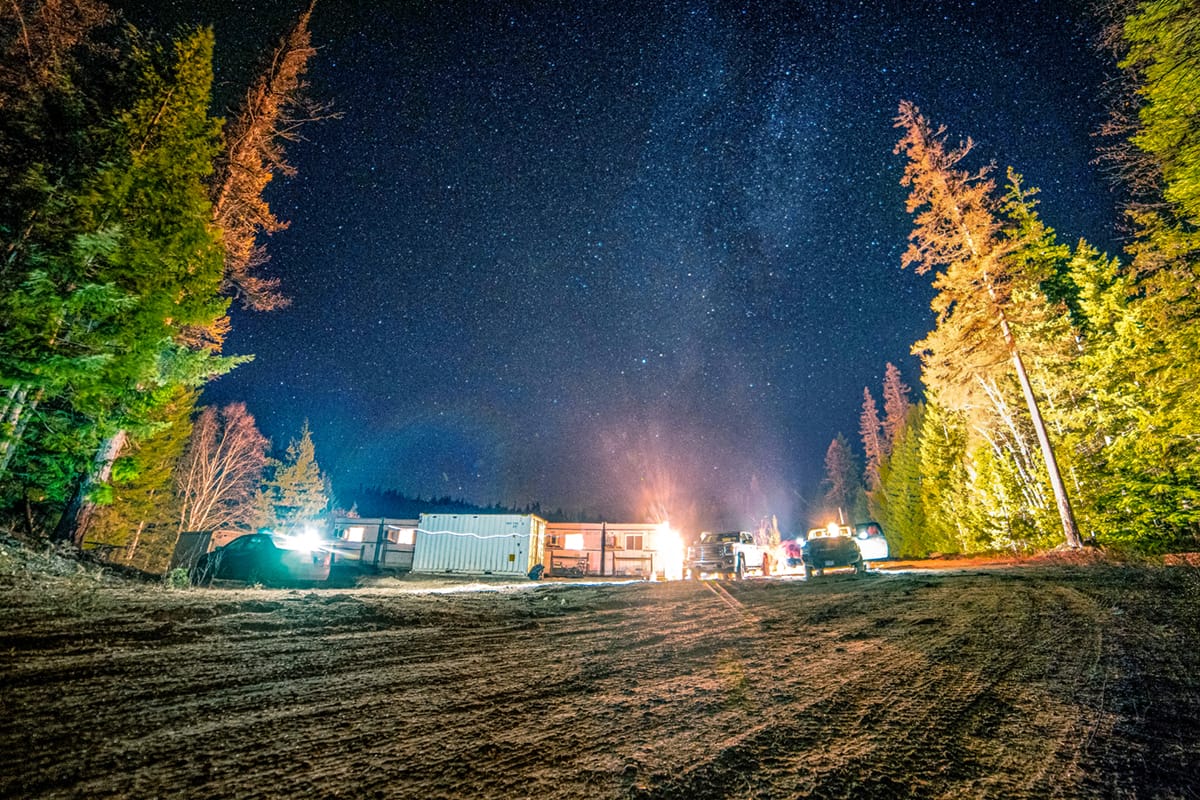
Working on remote jobsites has its perks.
Creating Solutions in Real Time
As if bureaucracy and the sheer logistics of moving buildings hundreds of miles weren’t challenging enough, resurrecting relocatable buildings that would otherwise have been forgotten is a never-ending exercise in problem-solving.
“While we always make sure we do a visual inspection of every building we purchase, we don’t always know the exact specifications, for example,” Mason explains. “Sometimes, that means that when we get them to their final destination, the crane truck on site cannot move them into position.”
Other challenges that the Moda Modular team has encountered so far include trees and powerlines, hard-to-access job sites, challenges with services for their buildings, and more.
However, while Moda Modular is certified to construct new modular buildings, its primary focus is breathing new life into retired camp accommodations, even if it means solving new problems on every job site.
“These buildings are made to be moved and reused multiple times,” says Mason, “so why not do exactly that?”
About the Author: Tamara Aspeling is a published author and freelance writer who specializes in construction and writes for print and web. She’s also a trained estimator and project manager with over 20 years of industry experience. You can reach her at www.theconstructionwriter.ca or words@theconstructionwriter.ca.
More from Modular Advantage
Samantha Taylor: Leading the (Modular) Design of Tomorrow
“With modern technology and the way we’ve all embraced things like BIM, file sharing, and video conferencing since COVID, it’s easy to collaborate with companies in Austria, or Singapore, or anywhere else in the world.”
Greg DeLeon: Military Engineering to Modular Design
Greg DeLeon, a structural engineer at ISE Structural Engineers in Temecula, California, can tell you not only how large a beam needs to be to support a house, but also how much explosives you’ll need to take it down, thanks to his unique combination of professional and military experience.
To Remake North Minneapolis, Devean George Swaps Basketball for Buildings
He’s lived in Los Angeles, Dallas, and San Francisco (to name a few). He’s delivered championships with the Los Angeles Lakers and made career-defining moves with the Dallas Mavericks and the Golden State Warriors. No matter the wins, the championships, or even the seemingly impossible 3-pointers, Devean George has always returned to where it all started for him: Minneapolis.
Chelsi Tryon: Making the World a Better Place
For Chelsi Tryon, Director of Environmental, Social, and Governance (ESG) for WillScot Mobile Mini, nothing is more enjoyable than increasing the
company’s sustainability efforts while simultaneously doing her bit to save the environment.
Joshua Hart: Pushing Boundaries
Joshua Hart, P.E., vice president at Modular
Solutions, can sum up his job responsibilities in one sentence: “I do whatever needs to be done.” Hart thrives on the variety and the opportunity to be involved in every aspect of the company. And it shows! You might say Hart has come full circle.
Jamie Metzger: From Construction to Apparel and Back Again
Growing up in a blue-collar city like Edmonton, Alberta, Canada, it’s no surprise that Jamie Metzger spent some time working labor jobs on construction sites. It’s one of the most common summer jobs in the city. But that’s probably the last predictable thing about this particular story.
Victor Masso: Expanding Modular in Puerto Rico
Victor Masso joined 2 Go Storage, a company started by his grandfather and father, in 2018 to develop a modular building division in the wake of the devastation caused by Hurricane Maria in 2017. Prior to joining the company, he had worked in the industry for about four years focusing on pharmaceutical, commercial, and government projects.
Eliyah Ryals: Finding the Perfect Fit
It’s not common for people to find their perfect career fit straight out of college. It’s even less common to find it in the town you grew up in. But that’s exactly what happened when Eliyah Ryals was told about vacancies at Panel Built and made the decision to apply.
Through It All, It’s Still About the Workers
By February 2024, the number of available, unfilled construction job openings had reached an all-time high. At some point, interest rates will fall, creating another surge in demand for such workers. In short, solving the nation’s skilled worker shortage issue has never been more important.
Navigating Insurance Challenges in the Modular Construction Industry
Utilizing practical written minimum insurance and indemnity requirements, along with monitoring certificates of insurance by someone who has COI training will not yield a perfect risk transfer strategy, but the exposure will be managed much better than it likely is currently.










